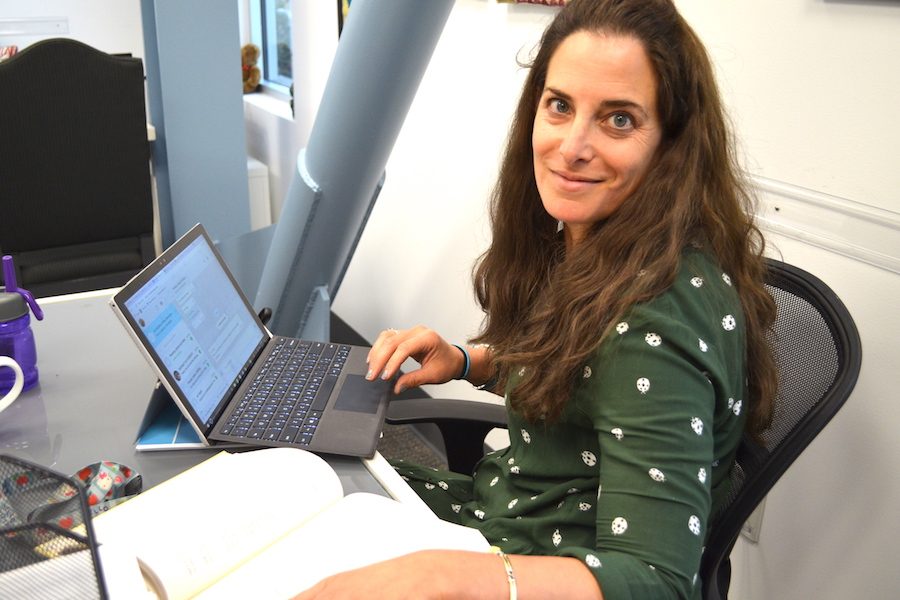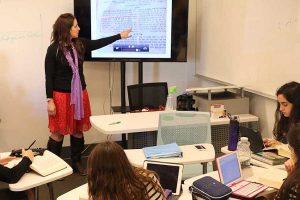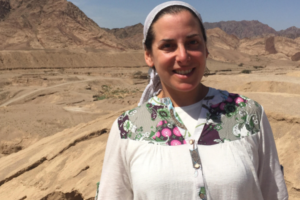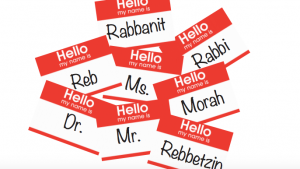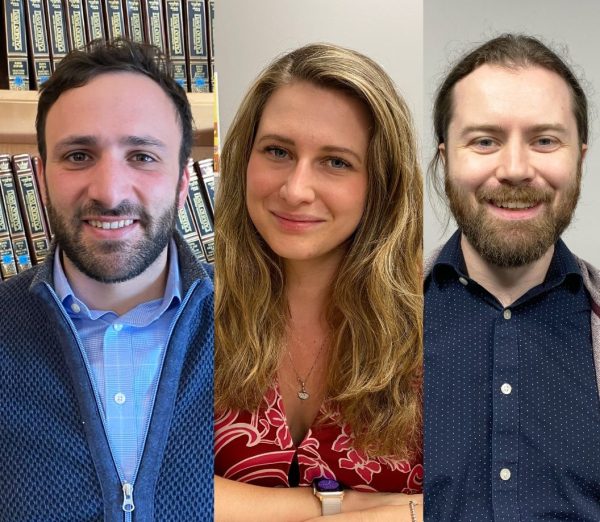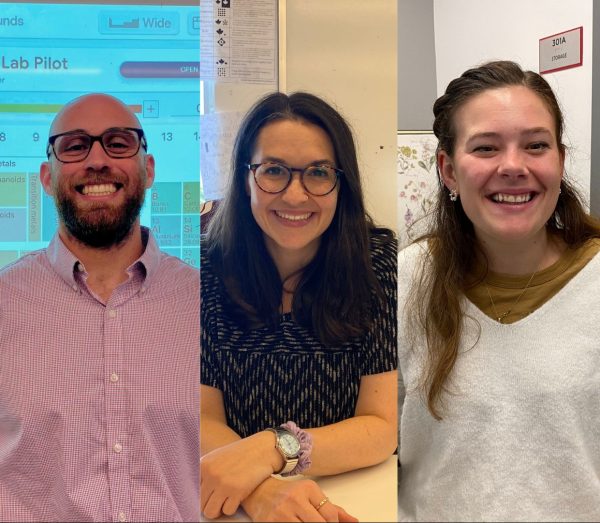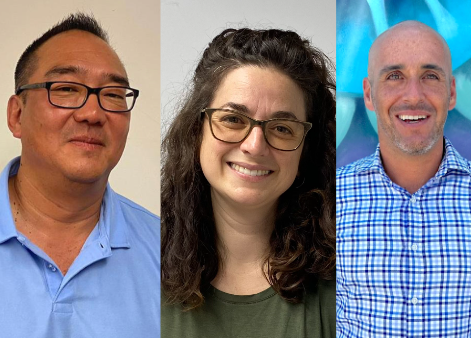Ms. Segal is first female teacher to get Jewish title at school
SCHOLAR: Yoetzet Halacha Atara Segal in 2013 became the first woman to teach Gemara in an Orthodox school in Los Angeles.
Yoetzet Halacha Atara Segal is Shalhevet’s first female Judaic faculty member to have a title other than Ms. or Morah, but neither she nor her husband, Head of School Rabbi Ari Segal, think that the title change is a big deal — apart from Rabbi Segal’s evident pride in his wife’s accomplishment.
“Get used to it!” Rabbi Segal said gleefully in the cafeteria last week when someone heard him refer to his wife as Yoetzet Segal.
“I think a lot of people are just calling her Yoetzet Segal,” he told the Boiling Point the next day, adding, “I’m using it on a personal level.”
Yoetzet Segal also downplayed the significance.
“I am not about titles, it doesn’t make a difference to me,” said Yoetzet Segal, who also is still happy to be called Ms. “I don’t spend a lot of time obsessing over or thinking about titles.”
She also thinks the new one is too long to make her official title.
“Honestly it’s a little bit of a mouthful — maybe if it were a shorter I would use it more,” she said.
However they downplay it, though, there is no doubt that Yoetzet Segal’s title is, for Shalhevet, historic. For reasons Rabbi Segal has explained several times in recent years — and explained again in an interview this week — titles for women in Orthodox Judaism are not simple.
“This has to do with our school being a very diverse school, but trying to maintain that diversity by also aligning ourselves with mainstream Modern Orthodoxy,” he said. “That includes titles.”
Rabba Ramie Smith, who was ordained by Yeshivat Maharat in New York, which gives women training comparable to Modern Orthodox rabbis receive, is not called Rabba by the school, but Rabbi Segal has said students may call her Rabba if they like.
“We’ve always tried to find a Solomonic balance,” Rabbi Segal said. If people want to call Ramie Rabba or Maharat Ramie, we said go ahead.”
Judaic Studies teacher Ms. Ilana Wilner, an alumna of Yeshiva University’s Graduate Program in Advanced Talmudic Studies (GPATS), was called Chachama for a few years until the title was banned by administration two years ago.
The role of Yoetzet Halacha, which allows trained women to make rulings on issues related to women’s health, fertility and intimacy in marriage, is much more widely accepted, he said.
“The yoetzet title was always accepted within the mainstream Modern Orthodox world,” he said, whereas GPATS “is a relatively new program.”
“We’re not legislating titles from above,” he added. “People can call someone what they want.” Rabbanit Chana Henkin, founder of the Yoetzet Halacha program, has said that not focusing on titles has helped the position of yoetzet halacha advance.
“Yoatzot Halacha have given women a dignified and much-needed halachic address for intimate issues,” Rabbanit Henkin writes on the program’s website. “I strongly believe that our decision to avoid fractious titles, while maintaining a sense of what the community is prepared to accept, has enabled us to build a new consensus around the reality of women halachic scholars.”
Yoetzet Segal thinks the title is important to use in certain settings.
“It’s important in order to professionalize the role of a Yoetzet Halacha,” she said. “When I’m doing things that are very specifically yoetzet halacha realm — like if I’m giving a speech about hilchot niddah, or if I’m coming to visit a community as a scholar-in-residence — then I think it is important.”
She does not see Shalhevet classrooms as such a setting.
“I want to make sure that students find me approachable,” Yoetzet Segal said. “A long title could maybe make you seem more distant, so I want to make sure that that doesn’t happen.”
Rabbi Segal said that this title change would not affect other title changes for other Judaic faculty members.
“We made a decision that the Maharat and Rabba and Rabbanit titles were not something we were going to do for the foreseeable future until there was a shift in public sentiment,” he said.
Rabbi Segal did, however, say that he hopes this will change some day as people focus on the educator.
“As people see them, they’ll start to worry less about title and more about quality of teaching,” Rabbi Segal said.
Features Editor Tobey Lee contributed to this story.

Clara Sandler was co-editor-in-chief during the 2018-19 school year and then studied at the Midreshet Lindenbaum seminary in Jerusalem. She is now a junior at the University of Chicago.

